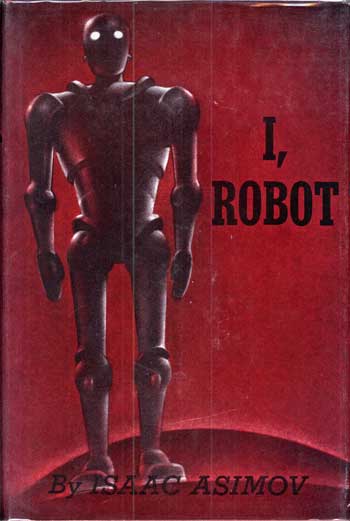I, Rudimentary Intelligence
Recent reports of artificial life forms which have “evolved” a basic form of intelligence have caused quite a stir in the biological and computer science communities.
This would normally be the time when I remind everyone that closer scrutiny must be paid to just what is meant by “life”, “evolve” and “intelligence”. But while those are all fascinating philosophical questions, there is no way in which a modest little blog post could begin to cover those topics. 
Instead, I’d like to draw attention to a particular aspect of Isaac Asimov’s writing, of which I can’t help being reminded after reading these reports. As the father of the term “robotics” and all things relating to it, Asimov dealt with nearly all of the issues relating to artificial intelligence. A few of his fictional robot characters even developed human-like, self-aware consciousness and creativity. But the one thing which stands out about these characters was that their consciousness was rarely a design of their creators, but rather a fluke. Minute variations in the mechanized construction of their positronic brains amounted to unique, creative minds.
Asimov’s choice to author conscious robots as results of random chance forces us to think about how human consciousness evolved in reality. It may be that such a consciousness is not strictly required for an organism to dramatically enhance its chances of survival and reproduction. We seem to assume that our superior cognitive abilities grant us an enormous advantage over other species, that the sort of consciousness which makes us self-aware, reflective and creative was the “end result” in a very long line of brain development. But evolution does not work towards such a specific end. There are plenty of other species (e.g. viruses) that persist with just as much vigor as us, despite their lack of cognitive powers associated with the forebrain. Perhaps only a minor, random mutation resulted in a dramatic and permanent change in the brain, a change which ultimately amounted to consciousness. Who knows what the odds are that such an intelligence evolved, or will evolve again in a computer simulation? At least we can be reassured that, on a long enough time scale, even the most unlikely event can occur.
In any case, Boston University’s own Isaac Asimov has made many a prediction with his science fiction, and many more can be expected.
“Artificial life forms evolve basic intelligence”-Catherine Brahic